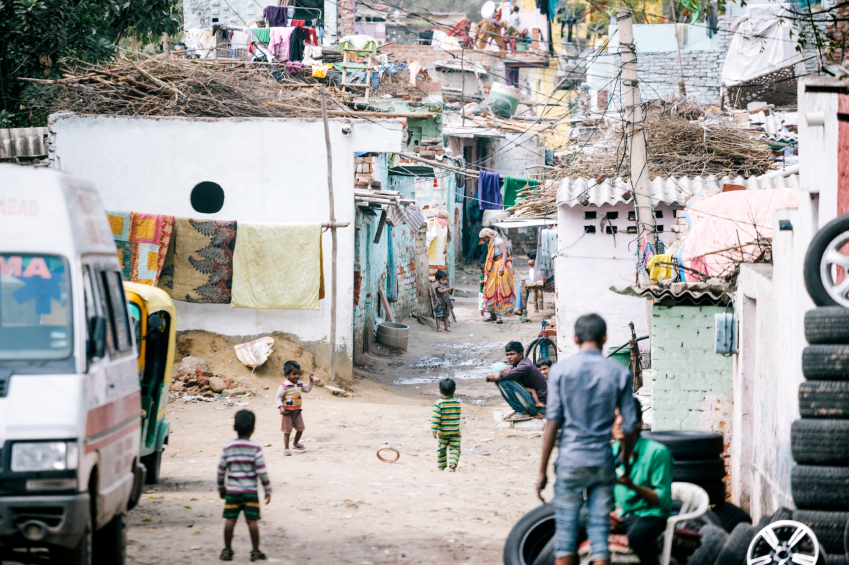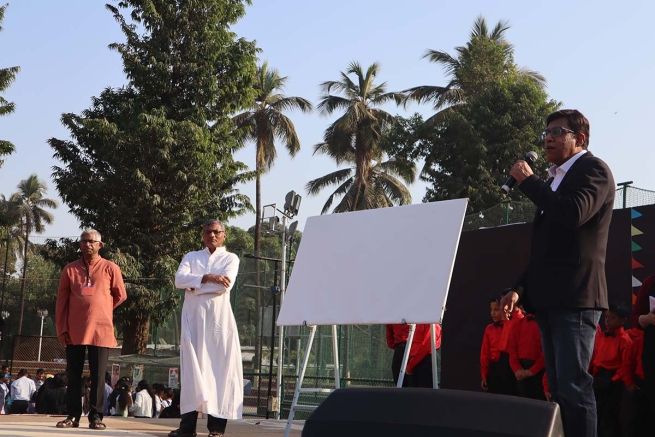INDIA: Salesian Missionaries Develop Mobile Medical Project Providing Health Care for Youth Living on the Streets

(MissionNewswire) Salesian missionaries in New Delhi, India’s capital city, have recently launched a new project providing mobile medical care for street children. A mobile medical van utilized to carry out the project is staffed with a full medical team including a doctor, a nurse and social workers. The van regularly visits 11 locations in the city where large numbers of street youth tend to congregate and live in makeshift shelters. Free check-ups and medication are provided for those under the age of 18.
According to the World Health Organization (WHO), close to 5.8 million Indians die each year from heart and lung diseases, stroke, cancer and diabetes. One in four Indians are at risk of dying as a result of a non-communicable disease before they reach the age of 70. Doctors in the country are also finding that people are being affected by heart disease, diabetes, cancer and chronic respiratory diseases at younger ages.
The WHO notes that globally, more than 4 million deaths are caused by exposure to indoor household air pollution and 3.7 million deaths are attributed to outdoor air pollution each year. Approximately 40 percent of the deaths from indoor air pollution and 25 percent of those attributed to outdoor air pollution occur in Southeast Asia. The poor in India who live near busy roads and industrial sites are disproportionately affected by air pollution as are women and children who spend more time at home breathing in smoke and soot from cooking stoves.
HIV/AIDS is also a serious concern in India. According to UNICEF, the disease was first detected in the country in 1986 and today there are 5.7 million people living with HIV/AIDS in India. Close to 38 percent of those infected with HIV are women and 55,000 to 60,000 children are born every year to mothers who are HIV positive. It is estimated that the country has more than 220,000 children infected with HIV/AIDS.
Salesian missionaries care for the sick in nearly 100 clinics and hospitals, located mostly in rural areas, around the globe. The new mobile medical project provided by Salesian missionaries helps address a number of serious and sometimes chronic health concerns faced by youth living on the streets. For some, this is the only medical care they receive.
According to Father Jose Matthew, a Salesian missionary overseeing work in New Dehli, the mobile medical team covers four locations per day. With two in the morning and two in the afternoon, it provides care for more than 20 young people each day. Prepared to address any number of medical conditions, the team most commonly treats malnutrition but also tends to those with malaria, traumatic injuries, upper respiratory infections, scabies, abdominal pain, abscesses, seizure disorders, conjunctivitis, anemia, viral fevers and infected wounds. Fr. Matthew adds that in addition to medical help, the team provides youth information and counseling on substance abuse including alcohol, chewing tobacco, drugs and the sniffing of correction fluid (a serious problem in India in recent years) as well as educational sessions on health and hygiene that teach preventive measures to maintain a healthy body and mind.
With more than 1.2 billion people, India has the world’s fourth largest economy and according to UNICEF, is home to one-third of the world’s poor. Close to 217 million of India’s poor are children. Although more than 53 million people escaped poverty between 2005 and 2010, most remain vulnerable to falling back below the poverty line.
Lack of educational opportunities in India are often due to issues of caste, class and gender and with 44 percent of the workforce illiterate, there is much work to be done. Less than 10 percent of the working-age population has completed a secondary education and too many secondary graduates do not have the knowledge and skills to compete in today’s changing job market.
###
Sources:
UNICEF – India – HIV/AIDS
PHOTO: Getty/iStock 2014: Children play in the streets of a Delhi shanty town




